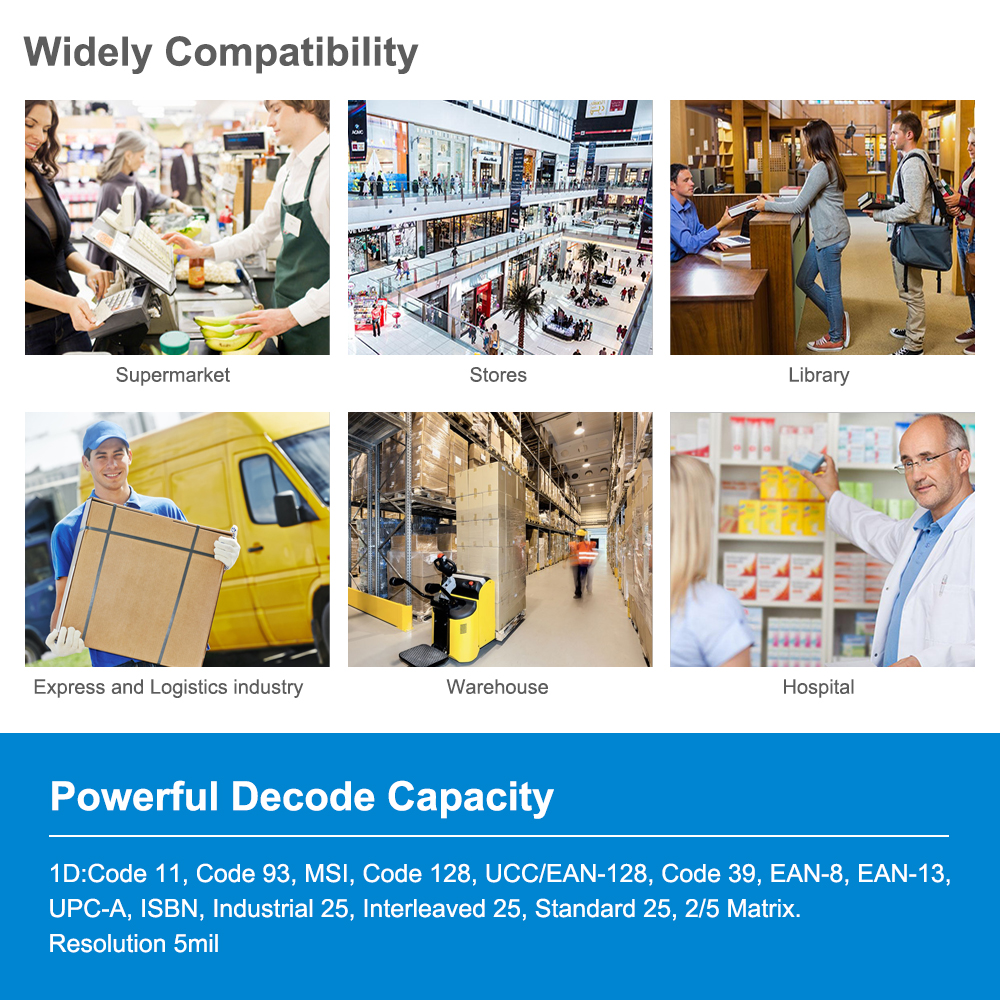In modern business and industry, barcode scanning technology has become a core tool for efficient operations. However, faced with the mainstream CCD barcode scanner and laser barcode scanners on the market, many users often face a dilemma in choosing between them. In reality, both technologies have their own advantages and disadvantages, and there's no absolute "better" option. The key lies in their compatibility with specific use cases. Understanding their technical principles and performance differences is crucial for making the right choice.
From a fundamental technical perspective, the two operate in completely different ways. CCD barcode scanners use a "photographic" recognition method, illuminating the barcode with an LED surface light source. A charge-coupled device sensor array then captures the complete image and decodes it, much like using a camera to analyze the information on a barcode. Laser barcode scanners rely on a "scanning line" recognition method, where a beam of light emitted by a laser diode is reflected to form a scan line. The data is analyzed by the brightness variations of the reflected light from the barcode, similar to quickly swiping a laser pointer across a barcode to obtain information.

The difference in core performance directly determines the scope of application. In terms of scanning distance, CCD barcode scanners are primarily for close range, typically performing reliably within 10 cm, while laser barcode scanner excel at medium and long ranges, with some industrial models supporting recognition at distances of 1-2 meters. In terms of barcode compatibility, CCD barcode scanners are superior at resolving 2D codes, while laser scanners have traditionally focused on 1D codes. CCD barcode scanners have an advantage in image restoration algorithms for blurred or smudged barcodes; in bright light environments, laser barcode scanner offer greater interference immunity thanks to their high-brightness beams.
Both scanners also have their own strengths in terms of durability and user experience. CCD barcode scanners have no moving parts, resulting in a sturdy structure and good drop resistance. Their lifespan can reach over 5 million triggers, and their compact and lightweight size makes them suitable for prolonged handheld use. Laser barcode scanners, due to their precision optical components, are susceptible to wear and tear from frequent use, resulting in less drop resistance. However, they offer a higher scanning frequency of 200-500 scans per second, making them suitable for dynamic barcode recognition.
The choice should be tailored to the specific scenario. For close-range QR code scanning scenarios like retail checkout and mobile payment, CCD barcode scanners offer superior compatibility and convenience. Their image restoration capabilities are more practical for scenarios where barcodes may be damaged, such as medical traceability and warehouse labeling. Laser barcode scanner offer greater efficiency for medium- and long-range or dynamic barcodes, such as warehouse sorting and industrial assembly lines. For outdoor operations in strong light, lasers offer more reliable interference rejection.
It is worth noting that the rise of imaging scanners is breaking down traditional boundaries. As an upgraded version of CCD technology, they combine high-resolution sensors with optimized algorithms, supporting both 1D and 2D codes. Their scanning range and glare tolerance approach laser performance, making them an all-rounder that meets the needs of multiple scenarios and is particularly well-suited for complex environments like e-commerce warehouses.
In short, choosing a barcode scanner should be based on specific needs: For close-range and QR code scanning, choose CCD barcode scanner; for medium- and long-range and 1D code scanning, choose laser barcode scanner. For complex scenarios, consider upgrading to imaging. There is no perfect technology, only the most suitable tools. Accurately matching the application to the specific scenario maximizes the value of scanning technology.
Netum has been deeply engaged in the barcode scanning field for 15 years, focusing on R&D, production, and solution innovation. From barcode scanning to text recognition, we leverage our comprehensive expertise to provide customers with customized, intelligent recognition solutions. Regardless of your application needs, we can provide a customized solution. Feel free to contact us for inquiries.

